🎉 Sale alert! spend $100 and get 15% OFF on all ebooks and enjoy instant downloads. Don't miss out!
“Meeting the Physical Therapy Needs of Children – 3rd Edition” has been added to your cart. View cart
NeuroRehabilitation 2025
Rated 5 out of 5 based on 8 customer ratings
(8 customer reviews)
$1,049.00 Original price was: $1,049.00.$144.95Current price is: $144.95.
Frequently bought together:
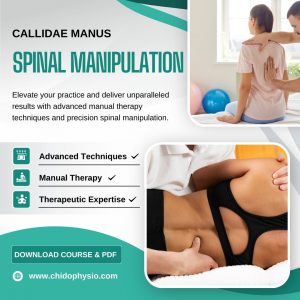
Callidae Manus Spinal Manipulation Course
Rated 5 out of 5
(24) 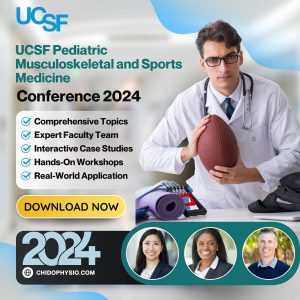
Pediatric Musculoskeletal and Sports Medicine Conference 2024
Rated 4.9 out of 5
(36) 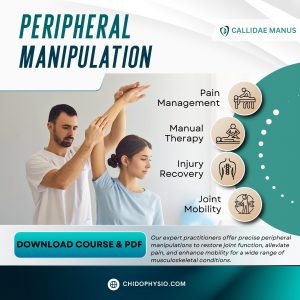
Callidae Manus Peripheral Manipulation Course
Rated 4.9 out of 5
(33) 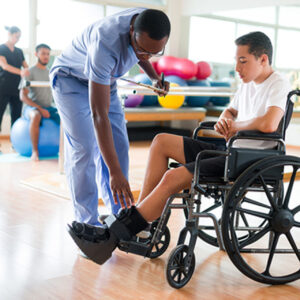
NYU Langone Comprehensive Review of Physical Medicine and Rehabilitation
Rated 4.9 out of 5
(48) 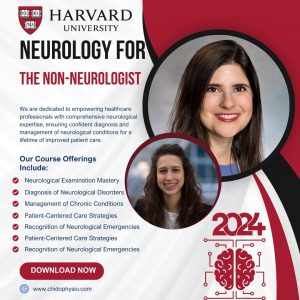
Neurology for the Non-Neurologist 2024
Rated 4.8 out of 5
(32)
Total: $144.95
Immediate access to your resources, enabling you to start your learning journey without delay.
At ChidoPhysio, we guarantee affordability. Our prices are always up to 80% lower than other providers, ensuring you receive top-quality medical books without breaking the bank.
At ChidoPhysio, our dedicated customer support team is here to assist you every step of the way 24/7 . Your questions and concerns are our top priority.
Rest easy knowing that your payment is secure and encrypted when you choose to purchase our dental education resources. We offer trusted payment options, including PayPal and Stripe, to safeguard your financial information. Your privacy and security are our top priorities.
Description
.
Harvard NeuroRehabilitation 2025
Cutting-Edge Updates in Stroke, TBI, and SCI Rehabilitation
Patients with stroke, SCI, TBI, and functional and degenerative neurological diseases face significant disruption to so many facets of their lives, and clinicians are left with so many treatment dimensions to consider, that rehabilitation is never simple. These challenges are compounded by the fact that rehabilitation approaches are now in a period of rapid expansion. It’s difficult to stay current with, choose, and use the best options for neurorehabilitation—yet this is key to optimizing patient outcomes.
It’s with these challenges in mind that we present NeuroRehabilitation 2025. Many of the country’s most experienced and committed neurorehabilitation experts provide updates and strategies for state-of-the-art clinical interventions. Education is comprehensive and practical. As a participant in the distance learning program, you can rely on this course for:
- Comprehensive updates
- Education to further your expertise in guiding patients to their maximum level of function
- Evidence-based approaches to challenging and complex cases
- Case studies
- Take-home tools
- A learning experience to heighten your success in effectively and efficiently helping your patients gain the skills that will improve their health, function, and quality of life
Enhanced and Accelerated Recovery
This program includes important updates, new best practices, and state-of-the-art approaches to enhance and accelerate recovery, including:
- Rehabilitation of memory and executive skills after stroke and TBI
- Spasticity management
- Pharmacologic options for aggressive behavior after TBI
- Treatment of pressure ulcers
- Functional neuroimaging in disorders of consciousness
- Early mobilization in the ICU
- Life Participation Approach to Aphasia
- Music therapy
- The shoulder post-stroke
- Lower extremity orthotics after stroke
- Musculoskeletal overuse after SCI
- Pediatric TBI
Improved Quality of Life
This program includes strategies, best practices, and cutting-edge approaches to help foster quality of life:
- Wellness groups for stroke survivors
- The SCI consumer perspective
- Vision rehabilitation after stroke
- Women’s health in SCI
- Resilience and adjustment after SCI
- Pharmacologic treatment of dementia
- Approaches to obesity in neurorehabilitation
Evolving Treatment Options
This program offers attendees the opportunity to learn about the future of treatment options and how and when they will impact patient outcomes:
- Artificial intelligence in neurorehabilitation
- Gamified neurorehabilitation treatments
- Forced exercise in Parkinson’s disease
- Cryoneurolysis for spasticity
- Psycho-pharmacogenomics
- Brain-computer and brain-spinal interfaces
Expanded Understanding of a Wide Range of Neurological Conditions
Through this program, Physicians, NPs, PAs, PTs, OTs, SLPs, and Psychologists can deepen their knowledge and optimize clinical decisions concerning the following neurorehabilitation issues:
- Stroke recovery
- Functional neurologic disorders
- Mild TBI and PTSD in the military
- Chronic traumatic encephalopathy
- Severe TBI and disorders of consciousness
- Chronic TBI
- Emotional dysregulation and affective processing after TBI
- Domestic violence and TBI
- Amyotrophic lateral sclerosis
- Autonomic dysfunction after SCI
- Visual dysfunction after stroke
Optimized for Remote Education
The 2025 program has been enhanced for distance learning. In addition to being live streamed, all sessions will be recorded and made available to participants for online viewing for 90 days after the end of the course.
Let’s take a look at the topics and Speakers
| Topic | Speaker |
|---|---|
| Welcome and Announcements | Mel Glenn, MD |
| Early Mobilization of Patients in the ICU (Keynote) | Nicole Mazwi, MD |
| Q&A with Dr. Mazwi | — |
| The Management of Spasticity (Keynote) | Monica Verduzco-Gutierrez, MD |
| Q&A with Dr. Verduzco-Gutierrez | — |
| Artificial Intelligence and Machine Learning in Neurorehabilitation | Paolo Bonato, PhD |
| Q&A with Dr. Bonato | — |
| Common Causes of Diagnostic Error in Patients with Severe Brain Injury (and Strategies to Avoid Them) | Joseph Giacino, PhD |
| Lower Extremity Orthotics After Stroke | Dawn Lucier, PT |
| The Perspective of People Living with SCI | Kimberly Anderson, PhD |
| Pediatric TBI | Brian Wishart, DO |
| Vision Rehabilitation After Stroke | Samira Mortazavi, OD |
| Sports & Exercise for People with SCI | Kathleen Salas, PT, MHA |
| New Diagnostic Criteria for Mild TBI | Grant Iverson, PhD |
| Forced Exercise for Parkinson's Disease | Jay Alberts, PhD |
| Brain-Computer and Brain-Spinal Cord Interfaces | Leigh Hochberg, MD, PhD |
| Rehabilitation of Memory Disorders After TBI and Stroke | Therese O'Neil-Pirozzi, ScD, CCC-SLP |
| Update on ASIA Classification | Marika Hess, MD |
| Morning Introduction | Mel Glenn, MD |
| What Can We Learn from Studying American Football Players? (Keynote) | Ross Zafonte, DO |
| Q&A with Dr. Zafonte | — |
| Gamified Neurorehabilitation Strategies | Jenna Tosto-Mancuso, PT, DPT |
| Q&A with Dr. Tosto-Mancuso | — |
| Recovery and Outcome After Severe TBI and Disorders of Consciousness | Yelena Bodien, PhD |
| Pharmacologic Treatment of Dementia | Scott McGinnis, MD |
| Resilience and Adjustment During Rehabilitation After SCI | Ann Marie Warren, PhD |
| Chronic TBI | Mel Glenn, MD |
| Models of Stroke Neurorecovery: The Cutting Edge | David Lin, MD |
| Aging with SCI | Sunil Sabharwal, MD |
| Rehabilitation of Executive Dysfunction After TBI and Stroke | Olivia Gampel, SLP & Emmaleigh Loyer, SLP |
| Update on Amyotrophic Lateral Sclerosis | Sabrina Paganoni, MD, PhD |
| Domestic Violence and TBI | Eve Valera, PhD |
| Life Participation Approach to Aphasia | Esther Herring, MS, CCC-SLP |
| Endocrine Issues After SCI | Shalender Bhasin, MD |
| Mild TBI and Post-Traumatic Stress Disorder in the Military | Lauren Brenner, PhD & Johnny Jarnagin, MD |
| Cryoneurolysis for Spasticity | Paul Winston, MD |
| Covert Consciousness in Severe TBI | Brian Edlow, MD |
| Music Therapy in Stroke and Parkinson’s Disease (Not CME eligible) | Brian Harris, MA, MT-BC, NMT/F |
| Women’s Health After SCI | Chloe Slocum, MD, MPH |
| Rehabilitation of Functional Neurologic Disorders | Ginger Polich, MD |
| Q&A with Dr. Polich | — |
| Improving Psychological Health After Mild Traumatic Brain Injury with Building Emotional Self-Awareness Teletherapy (BEST): Case Studies | Dawn Neumann, PhD |
| Wellness Groups for Stroke Survivors | Elizabeth Frates, MD |
| Assessment and Treatment of Pressure Ulcers After SCI | Jennifer Godfrey, RN, CWCN |
| Pharmacologic Approaches to Emotional and Behavioral Dyscontrol After TBI | Hannah Steere, MD |
| Neglect/Inattention After Stroke | Priyanca Shah, DO, MBA |
| Musculoskeletal Overuse in People with SCI | Dana Kotler, MD |
| Risk Factors and Clinical Manifestation of Chronic Traumatic Encephalopathy | Daniel Daneshvar, MD, PhD |
| The Shoulder After Stroke | Craig Rovito, MD |
| Autonomic Dysfunction After SCI | James Doan, MD |
| Obesity and Cardiometabolic Disease in TBI, Stroke, and SCI (Keynote) | Simon Driver, PhD |
| Q&A with Dr. Driver | — |
| Psycho-Pharmacogenomics in Neurorehabilitation | Alyson Wolz, DNP |
| Q&A with Dr. Wolz | — |
| Closing Remarks | Mel Glenn, MD |
Who you will learn from
| Name | Title / Affiliation |
|---|---|
| Mel Glenn, MD | Course Director; Associate Professor of Physical Medicine and Rehabilitation, Harvard Medical School; Spaulding Rehabilitation; National Medical Director, NeuroRestorative; Medical Director, Community Rehab Care |
| Yelena G. Bodien, PhD | Assistant Course Director; Lecturer on Physical Medicine and Rehabilitation, Harvard Medical School; Research Scientist, Spaulding Rehabilitation |
| Chloe S. Slocum, MD, MPH | Assistant Course Director; Assistant Professor of Physical Medicine and Rehabilitation, Harvard Medical School; Spaulding Rehabilitation |
| Harvard Medical School | |
| Shalender Bhasin, MD | Professor of Medicine |
| Yelena Guller Bodien, PhD | Lecturer on Physical Medicine and Rehabilitation, Harvard Medical School |
| Paolo Bonato, PhD | Associate Professor of Physical Medicine and Rehabilitation |
| Lauren Brenner, PhD | Instructor in Psychiatry |
| Daniel Daneshvar, MD, PhD | Assistant Professor of Physical Medicine and Rehabilitation |
| Brian Edlow, MD | Associate Professor of Neurology |
| Elizabeth Frates, MD | Associate Professor of Physical Medicine and Rehabilitation (Part-time) |
| Joseph Giacino, PhD | Professor of Physical Medicine and Rehabilitation |
| Mel Glenn, MD | Associate Professor of Physical Medicine and Rehabilitation |
| Marika Hess, MD | Instructor in Physical Medicine and Rehabilitation |
| Leigh Hochberg, MD, PhD | Senior Lecturer on Neurology (Part-time) |
| Grant Iverson, PhD | Professor of Physical Medicine and Rehabilitation |
| Johnny Jarnagin, MD | Instructor in Physical Medicine and Rehabilitation |
| Dana Kotler, MD | Assistant Professor of Physical Medicine and Rehabilitation |
| David Lin, MD | Assistant Professor of Neurology (Part-time); Associate in Bioengineering, Faculty of Arts and Sciences |
| Scott McGinnis, MD | Assistant Professor of Neurology |
| Samira Mortazavi, OD | Instructor in Ophthalmology |
| Sabrina Paganoni, MD, PhD | Associate Professor of Physical Medicine and Rehabilitation |
| Ginger Polich, MD | Assistant Professor of Physical Medicine and Rehabilitation |
| Craig Rovito, MD | Instructor in Physical Medicine and Rehabilitation |
| Sunil Sabharwal, MD | Associate Professor of Physical Medicine and Rehabilitation |
| Priyanca Shah, DO, MBA | Instructor in Physical Medicine and Rehabilitation |
| Chloe Slocum, MD, MPH | Assistant Professor of Physical Medicine and Rehabilitation |
| Hannah Steere, MD | Instructor in Physical Medicine and Rehabilitation |
| Eve Valera, PhD | Associate Professor of Psychiatry |
| Brian Wishart, DO | Instructor in Physical Medicine and Rehabilitation |
| Ross Zafonte, DO | Earle P. and Ida S. Charlton Professor and Chair of Physical Medicine and Rehabilitation |
| Guest Faculty | |
| Jay Alberts, PhD | Edward F. and Barbara A. Bell Family Endowed Chair; Director, Cleveland Clinic Concussion Center; Vice Chair of Innovation, Cleveland Clinic Neurological Institute |
| Kimberly Anderson, PhD | Professor of Physical Medicine and Rehabilitation, Case Western Reserve University |
| James Doan, MD | Assistant Professor of Physical Medicine and Rehabilitation, Baylor College of Medicine |
| Simon Driver, PhD | Ginger Murchison Chair in Traumatic Brain Injury Research, Baylor Scott and White Research Institute |
| Olivia Gampel, SLP | Advanced Clinician, Speech Language Pathology, Spaulding Rehabilitation |
| Jennifer Godfrey, RN, CWCN | Wound Care Specialist, Spaulding Rehabilitation Hospital Cambridge |
| Brian Harris, MA, MT-BC, NMT/F | Neurologic Music Therapist, Spaulding Rehabilitation |
| Esther Herring, MS, CCC-SLP | Instructor, Communication Sciences & Disorders, MGH Institute of Health Professions |
| Emmaleigh Loyer, SLP | Supervisor of Audiology & Speech-Language Pathology Services, University of Vermont Medical Center |
| Dawn Lucier, PT | Clinical Specialist, Spaulding Rehabilitation Hospital Cape Cod |
| Nicole Mazwi, MD | Associate Professor of Physical Medicine and Rehabilitation, University of Washington |
| Dawn Neumann, PhD | Associate Professor of Neurosurgery and Brain Repair, University of South Florida |
| Therese O'Neil-Pirozzi, ScD, CCC-SLP | Associate Professor, Communication Sciences and Disorders, Northeastern University |
| Kathleen Comfort Salas, PT, MHA | Boston Coordinator, Spaulding Adaptive Sports Centers |
| Jenna Tosto-Mancuso, PT, DPT | Clinical Director, Abilities Research Center, Mount Sinai Health System |
| Monica Verduzco-Gutierrez, MD | Professor and Chair, Department of Rehabilitation Medicine, UT Health San Antonio |
| Ann Marie Warren, PhD | Clinical Assistant Professor of Surgery, Texas A&M |
| Paul Winston, MD | Clinical Associate Professor of Physical Medicine and Rehabilitation, University of British Columbia |
| Alyson Wolz, DNP | Medical Director, NeuroRestorative Chicago |
Course Director
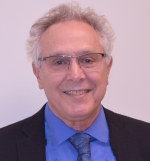
Dr. Mel Glenn is a physician specializing in physical medicine and rehabilitation, with a distinguished career focused on brain and spinal cord injury. He graduated from New York University School of Medicine in 1978 and completed his internship, residency, and fellowship in spinal cord injury medicine at NYU Medical Center and the Rusk Institute. From 1982 to 1993, he served on the faculty at Tufts University School of Medicine and directed brain injury programs at the Greenery Rehabilitation Center and New England Sinai Hospital. He later became Professor and Chairman of Rehabilitation Medicine at Boston University School of Medicine and Chief at Boston Medical Center, where he directed a major spinal cord injury research program. Since 1998, Dr. Glenn has been part of Spaulding Rehabilitation Hospital and is currently an Associate Professor at Harvard Medical School. He also served as Project Director of Harvard’s Traumatic Brain Injury Model System from 1998 to 2008. In addition to his academic roles, he has long-standing positions as Medical Director of Brain Injury Services at NeuroRestorative and Community Rehab Care. A respected leader in his field, Dr. Glenn was founding editor of the Journal of Head Trauma Rehabilitation’s pharmacology column and is now Editor Emeritus. He has authored more than 50 publications and delivered over 280 presentations, contributing extensively to the advancement of brain injury rehabilitation.
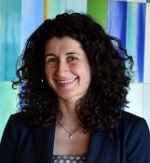
Dr. Yelena Bodien is a clinical neuroscientist working on improving diagnostic and prognostic precision as well as treatment efficacy for patients diagnosed with impairments in conscious awareness following brain injury. By combining advanced neuroimaging techniques, such as functional MRI, with standardized behavioral assessments, she hopes to better understand the neurobiological basis for disorders of consciousness. She believes this understanding will translate into better early and long-term outcomes for the most severely injured patients. She is fortunate to have a dual appointment at Massachusetts General Hospital and Spaulding Rehabilitation Hospital, which provides a unique perspective on the continuum of recovery from severe brain injury. Seeing both miraculous healing and devastating loss motivates her to find answers in a field of many unknowns.
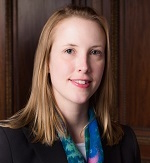
Dr. Slocum completed her Spinal Cord Injury Medicine fellowship training at Harvard Medical School Department of Physical Medicine and Rehabilitation, Spaulding Rehabilitation Hospital, and VA Boston Healthcare System. Clinically, she specializes in neurological rehabilitation and management of complications that arise from spinal cord injury and neurological disorders. She is especially interested in urological health and health promotion for people with spinal cord injury and neurological conditions. Dr. Slocum received her Master in Public Health degree from Harvard T.H. Chan School of Public Health with the Commonwealth Fund Mongan Fellowship in Minority Health Policy at Harvard Medical School, where she focused on health policy and health equity for people with disabilities.
After participating in this activity, clinicians should be able to:
Upon completion of this course, participants will be able to:
- Summarize the research evidence base for neurorehabilitation practice.
- Integrate state-of-the-art, evidence-based approaches to neurorehabilitation into their care of patients.
- Evaluate advances in research that will lead to future approaches to neurorehabilitation.
- Relate what recovery of American football players tells us about neurorehabilitation.
- Discuss the benefits of early mobilization of patients with neurologic disorders in the ICU.
- Discuss how gamification can be used to treat patients with neurologic disorders.
- Describe the approach to working with patients with functional neurologic disorders.
- Discuss appropriate treatments for spasticity after CNS injury or disease.
- Summarize the recent advances in cognitive rehabilitation of memory and executive disorders.
- Recall benefits of music therapy to stroke and Parkinson’s disease.
- Describe approaches to obesity and cardiometabolic disease in neurorehabilitation patients.
- Discuss the spinal cord injury consumer’s perspective on disability.
- Describe methods to assess emotional and social behavior in patients with traumatic brain injury.
- Describe the use of genomics to facilitate psychopharmacology in neurorehabilitation.
Intended Audience
This program is designed for clinicians and healthcare professionals who care for patients with stroke, spinal cord injury, traumatic brain injury, and neurodegenerative disorders, and who seek the latest evidence-based strategies to optimize recovery and quality of life.
It is especially relevant for:
-
Physicians
-
Physiatrists
-
Neurologists
-
Geriatricians
-
Internists
-
Family Practitioners
-
-
Rehabilitation Specialists
-
Physical Therapists (PTs)
-
Occupational Therapists (OTs)
-
Speech-Language Pathologists (SLPs)
-
-
Advanced Practice Providers
-
Nurse Practitioners (NPs)
-
Physician Assistants (PAs)
-
Nurses
-
-
Mental Health and Allied Health Professionals
-
Psychologists
-
Other health professionals engaged in neurological rehabilitation
-
Our Happy Clients Say About Us
Karen Blake,
Nurse Practitioner
I often care for patients transitioning from acute care to rehabilitation, and this book has provided me with a wealth of knowledge I can immediately use in practice. The chapter on pressure ulcer management alone was worth it, offering updated evidence and practical protocols. I also found the coverage of endocrine and women’s health issues after SCI especially valuable, as these topics are rarely explored in detail elsewhere. The writing is clear, well-structured, and easy to digest, making it perfect for busy clinicians. I feel more confident in managing complex cases thanks to this resource. I highly recommend it to NPs and PAs in neurorehab.
James O’Connor,
Psychologist
Neurorehabilitation often overlooks the psychological dimensions of recovery, but this book gives them the attention they deserve. The sections on PTSD in the military, emotional dysregulation after TBI, and domestic violence-related brain injuries were particularly powerful. As a psychologist, I gained practical strategies for integrating mental health interventions into rehabilitation care. I also valued the insights into pharmacologic approaches and resilience-building techniques, which align beautifully with psychological practice. This book bridges the gap between medicine, therapy, and psychology in a way few resources manage to do. It’s an indispensable guide for any mental health professional working with neurological patients.
Laura Gonzalez,
Occupational Therapist
As an OT specializing in stroke recovery, I constantly look for resources that can provide both depth and practicality. This book exceeded my expectations. The Life Participation Approach to Aphasia and vision rehabilitation chapters gave me tangible strategies I could implement with my patients right away. I also found the focus on executive function and memory rehabilitation after TBI incredibly useful—these are areas we often struggle with in practice. What I appreciated most was how the book addresses the human side of rehabilitation—resilience, adjustment, and quality of life. It’s not just about function, it’s about living fully.
Dr. Emily Chen,
Neurologist
What impressed me most about this book is the balance between cutting-edge science and clinical practicality. The chapters on covert consciousness, functional neuroimaging, and brain-computer interfaces are exactly the type of forward-looking insights neurologists need to prepare for the future of neurorehabilitation. Yet, the text never loses its focus on the patient. The dementia pharmacology section and the coverage of emotional dysregulation after TBI gave me new frameworks to improve outcomes in challenging cases. It’s rare to find a single resource that is this comprehensive, well-organized, and clinically relevant. It’s quickly become my go-to reference.
Michael Rivera,
PT, DPT (Physical Therapist)
I have worked in neurorehabilitation for over a decade, and I can honestly say this is one of the most comprehensive and practical resources I’ve come across. The sections on lower extremity orthotics and musculoskeletal overuse after SCI were exactly what I needed to improve my treatment plans. The explanations are clear, with actionable strategies that translate directly into clinical practice. I also loved the emphasis on patient quality of life, such as resilience, wellness groups, and women’s health after SCI. It’s not just about physical recovery—it’s about treating the whole person. Every PT should have this on their desk.
Dr. Sarah Mitchell,
Physiatrist
As a practicing physiatrist, staying up to date with neurorehabilitation advances is critical, but often overwhelming. This book has been a game-changer. The chapters on spasticity management and early mobilization in the ICU were both practical and evidence-based, giving me tools I could apply immediately with my patients. I especially appreciated the integration of case studies, which made the concepts come alive. The section on AI and gamified rehabilitation opened my eyes to future technologies I hadn’t fully considered before. For any physician dealing with stroke, SCI, or TBI, this resource feels like a condensed masterclass. Highly recommended.
Load more
Trusted by healthcare professionals worldwide,
6183 Students
99% Positive rating
Frequently Awesome Questions
After making a purchase, you will receive an email containing a text file. Download the text file to obtain the course link.
Yes, the course is designed to be accessible on both desktop and mobile devices. You can access it using a web browser on your smartphone or tablet.
No, there is no time limit for completing the course. Once you purchase it, you will have lifetime access to the course materials and can learn at your own pace.
We accept various payment methods, including credit cards, debit cards, and PayPal.
Yes, you will have the option to download the course materials, such as lecture slides, handouts, and supplementary resources, for offline access.
All courses and lectures on ChidoPhysio are conducted in English. We provide educational content in English to offer a consistent and comprehensive learning experience for our users.
Add a review Cancel reply
Ebooks related to this title
-
PDF
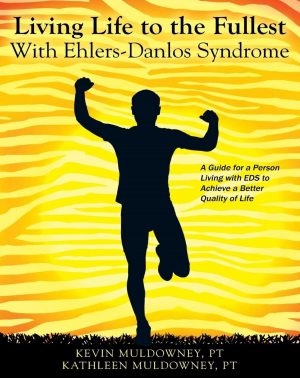
Living Life to the Fullest with Ehlers-Danlos Syndrome: Guide to Living a Better Quality of Life While Having EDS
Rated 4.84 out of 5$49.95Original price was: $49.95.$24.95Current price is: $24.95. Download PDF -
PDF
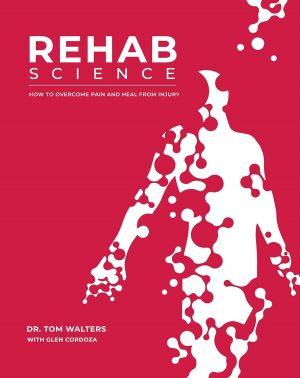
Rehab Science: How to Overcome Pain and Heal from Injury
$69.95Original price was: $69.95.$29.95Current price is: $29.95. Download PDF -
PDF
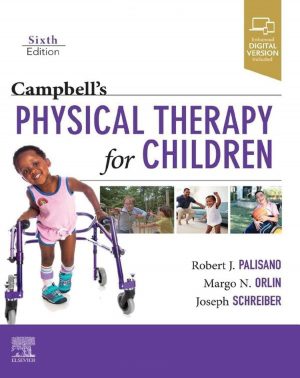
Campbell’s Physical Therapy for Children – 6th Edition
$89.95Original price was: $89.95.$29.95Current price is: $29.95. Download PDF


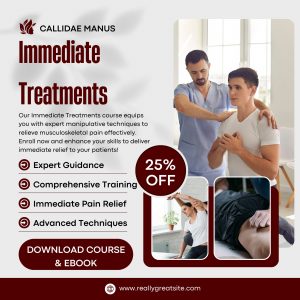

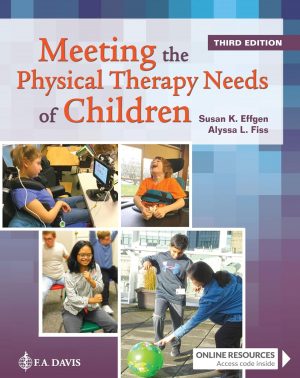
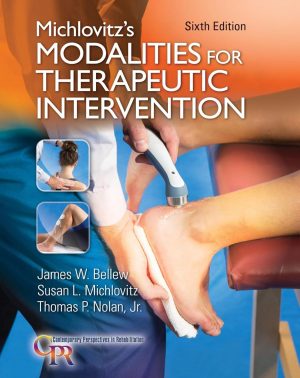
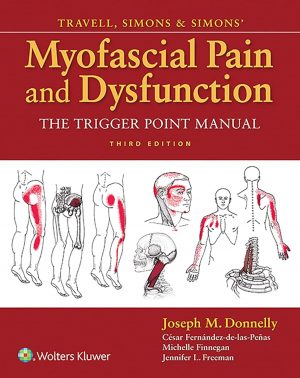
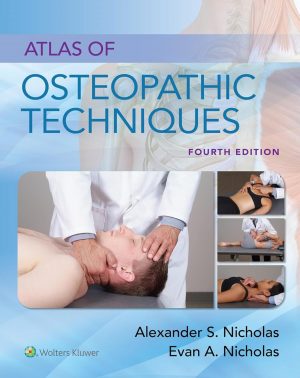
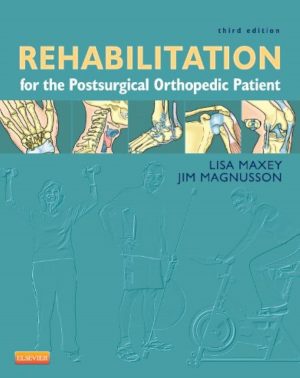
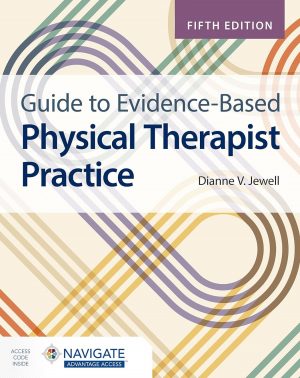
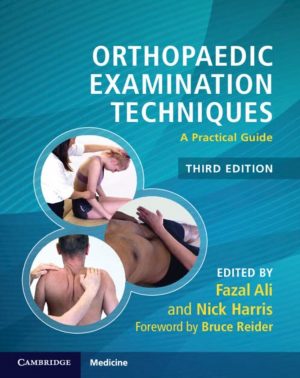
8 reviews for NeuroRehabilitation 2025